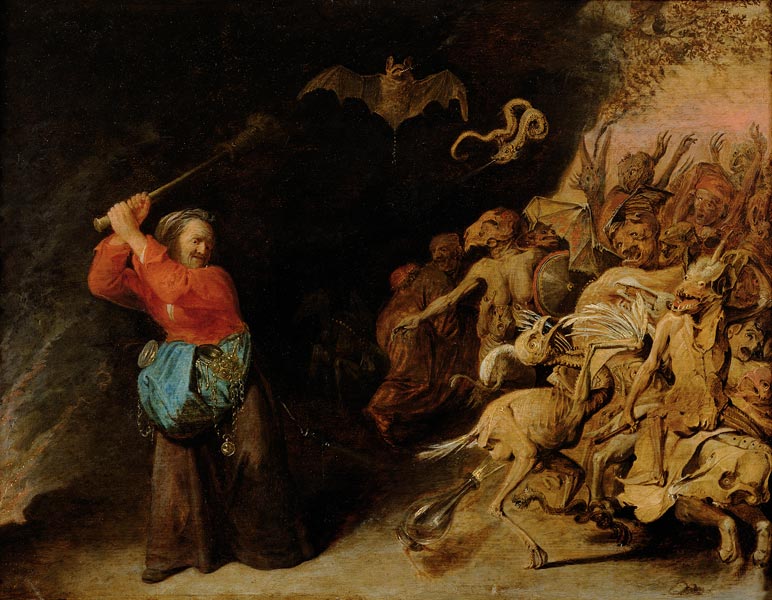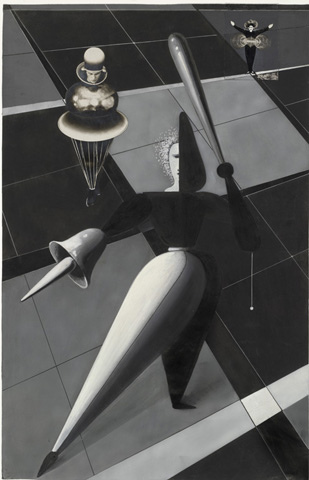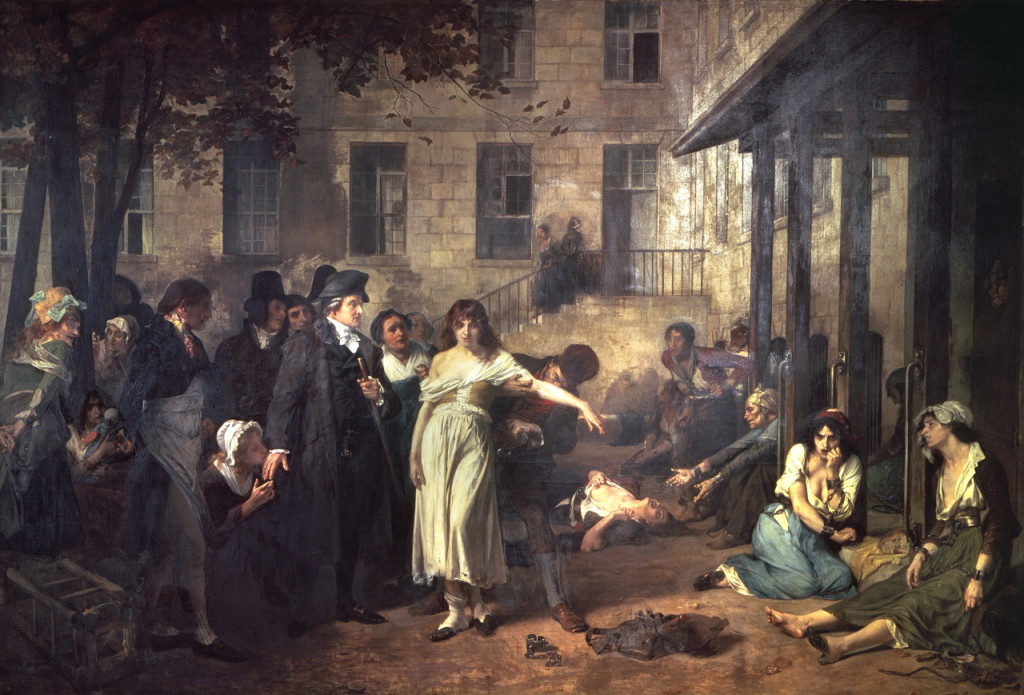Visions that contained all the dark terrors that haunt today’s world. The interplay of shapes and shadows of the modern world in a dance with the emptiness of nihilism, the spirit of old ghettos and of vast , unapproachable and incomprehensible authority that permeates his literary output driving the narrative into an obscure realm of the dehumanized, alienated and isolated from all times and places. When Gregor dies in The Metamorphosis and is swept out with the rubbish by the maid, it was the end of an era.

Max Brod: Through Kafka’s world, there sounds softly but unmistakably the note of love for the human creature who will “nevertheless” not be abandoned- so runs the promise- by the divine powers…” click image for source…
In The Trial, a priest tells Josef K., who like Kafka, is consumed by the law, this story:
“BEFORE THE LAW stands a doorkeeper. To this door-keeper there comes a man from the country and prays for admittance to the Law. But the doorkeeper says that he cannot grant admittance at the moment. The man thinks it over and then asks if he will be allowed in later. “It is possible,” says the doorkeeper, “but not at the moment.” Since the gate stands open, as usual, and the doorkeeper steps to one side, the man stoops to peer through the gateway into the interior. Observing that, the doorkeeper laughs and says: “If you are so drawn to it, just try to go in despite my veto. But take note: I am powerful. And I am only the least of the door-keepers. From hall to hall there is one doorkeeper after another, each more powerful than the last. The third doorkeeper is already so terrible that even I cannot bear to look at him.” These are difficulties the man from the country has not expected; the Law, he thinks, should surely be accessible at all times and to everyone, but as he now takes a closer look at the doorkeeper in his fur coat, with his big sharp nose and long, thin, black Tar-tar beard, he decides that it is better to wait until he gets permission to enter.”…

—Bauhaus works of art have a drone-like quality, that is, they are oddly like the unmanned drones beginning to be widely used in contemporary warfare. They anticipate and prophesize the future, as art has been said to do, making them “futuristic” — indeed, in Marinetti’s sense, for they are the ultimate instruments of the war of the new against the old that he celebrated (along with war in general as a cleansing purge, which is what, it so happens, Marcel Duchamp thought Dadaism was; is there a Dadaist nihilistic undertone — a purge of “ethnic” or “native” art — in Bauhaus art?).—click image for source…
As much as Kafka could in his manner, pass judgement on passes judgment bourgeois perception and lack of profundity,he unlike the emerging Dadaist movement, would not carry his damnation to apocalyptic proportions from which there was no plan B exit to everyday conceptions of sanity. There was no throwing one’s trust to the whims of the irrational and subsequent downfall from any hope of synthesis and integration. Suffering was not immortal and fruitful but rather futile and a variant of spiritual defeatism. At least modernism appeared as such: haphazard meandering voyages into structurelessness without firm foundation for the self and subsequent gestures of creativity based on historical precedent.
…The doorkeeper gives him a stool and lets him sit down at one side of the door. There he sits for days and years. He makes many at-tempts to be admitted, and wearies the doorkeeper by his importunity. The doorkeeper frequently has little interviews with him, asking him questions about his home and many other things, but the questions are put indifferently, as great lords put them, and always finish with the statement that he cannot be let in yet. … “Everyone strives to reach the Law,” says the man, “so how does it happen that for all these many years no one but myself has ever begged for admit-tance?” The doorkeeper recognizes that the man has reached his end, and to let his failing senses catch the words roars in his ear: “No one else could ever be admitted here, since this gate was made only for you. I am now going to shut it.”
Plainly put, Kafka correctly perceived the spiritual crisis if modernism. The new reference points were illusory- shifting and flexible ideologies and the old anchors of society were submerged and all in all the ripe condition for nihilism which is a void lacking both past and future, concept over form and a very dark pessimism which at its core is anti-life and anti-living…( to be continued)…






 COMMENTS
COMMENTS